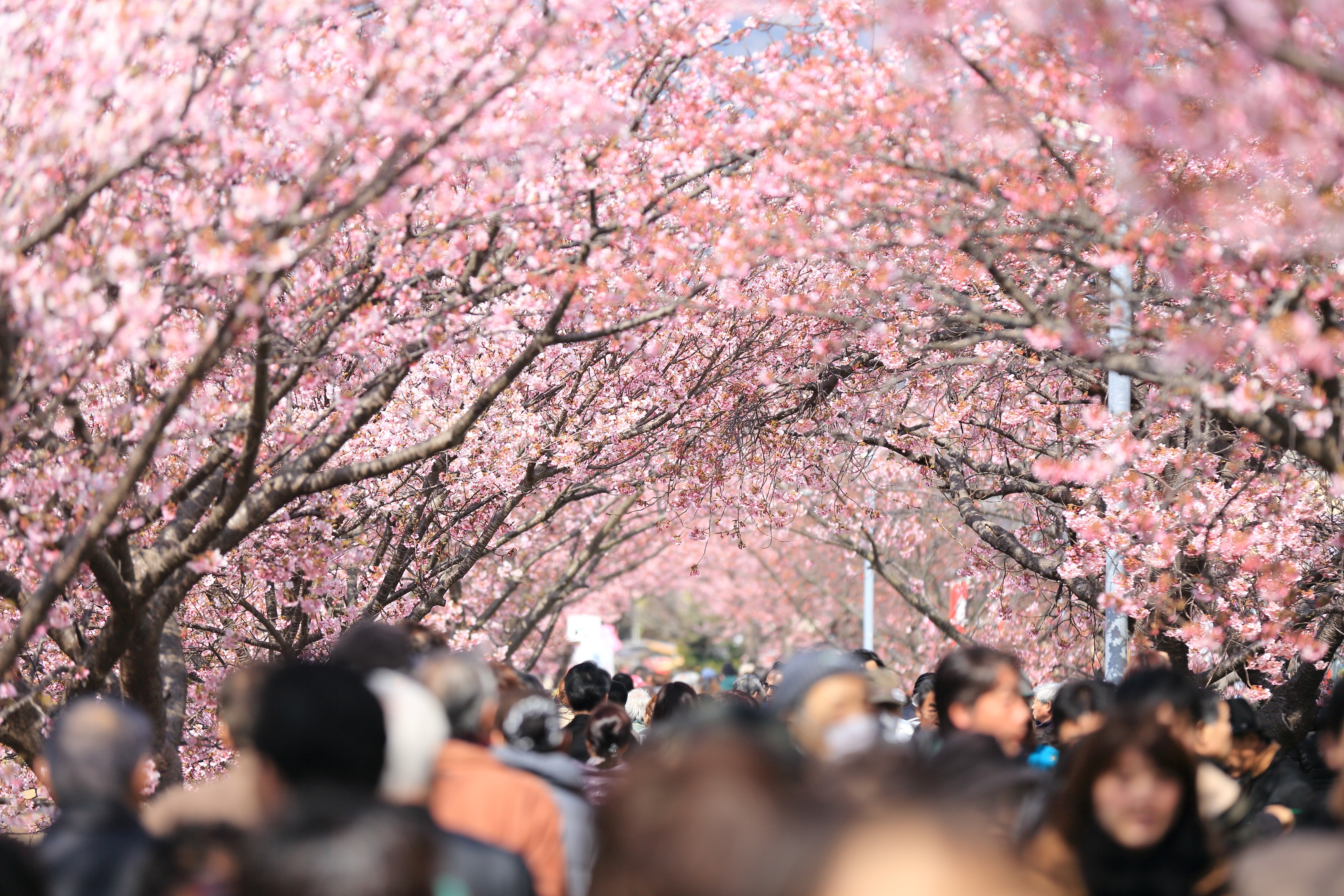
Prompt Images
When I’m asked, “where are you from,” by new people I meet, I commonly retort with a simple truth, “I was born in D.C., but my life began when I moved to New York City.”
My mother and I lived in D.C. until I was 7 years old, so there are only a few things that I remember vividly, the kind of memories that are easily recreated just by shutting your eyes and quieting your mind long enough to ignore text messages and frivolous Facebook notifications in response to one of my frivolous Facebook posts.
Among those memories, I find the National Zoo captive pandas, Ling Ling and Hsing Hsing, the superfluous fireworks on the evening of Independence Day, my uncles yelling at the T.V. on Sundays due to some major infraction committed by the football team with a racist name and logo and the compelling beat of “Go-go” music that seemed to bestow superpowers upon hips and butts in the presence of those lo-fi drums.
But what I remember most was packing a picnic lunch with Mummy before heading to nature’s gift of ice cream for the eyes, the annual Cherry Blossom Festival.
Ah, the Cherry Blossom Festival.
A panoply of sights and sounds. The unofficial reminder that spring is upon us. A rite of passage. A reminder of nature’s supremacy through its simplicity: sunrise, sunset, wind, rain, warmth, and cold, while conducting a symphony of ultimate balance.
Japan (a country we would later bomb the fuck out of and subject to a generation of radioactivity) first gifted these Cherry Blossom trees to the United States in 1912, and since then, they have become a signal of spring and a primary draw to D.C. Tourists and locals aim to witness these magnificent trees at their point of peak bloom. However, timing that correctly has become more and more difficult.
In 1984, the last year we lived in D.C., the peak bloom date for Cherry Blossoms was April 4th.
Since then, peak bloom dates fluctuated significantly, and by now have now become downright erratic. In the past 10 years, peak bloom dates have varied by almost 3 weeks—a remarkable and concerning change for a process so delicate.
According to AccuWeather Senior Meteorologist, Brett Anderson, “Flowers from the cherry trees have bloomed earlier in recent years, and warmer weather appears to be the culprit.” He goes on to say, “Climate change is likely playing a role in this trend towards more earlier peak bloom dates.”
There’s a reason for this anthropogenic, unnatural phenomenon.
According to GlobalChange.gov, “On average, the start of spring has occurred earlier in the contiguous United States since 1984,” which is the last year I lived in D.C. Earlier springs have myriad implication for agriculture, natural resource and hazard management, and recreation. So, let’s put this into perspective, using quasi-pop metaphors to compound the point.
Climate change is so fucked up, in part, because of its fossil-fueled superpowers.
In movies, we have seen “enhanced” sheroes and heroes who can leap tall buildings, shape shift, and flat out fly through outer space without a helmet. But how many of those heroes can make an entire season start earlier? That’s some powerful shit. That’s climate change. Even with all the Infinity Stones in one gauntlet, Thanos is in awe of the power of climate disruption.
Continuing the theme of self-gratifying nostalgia, let’s shift the discussion to one of my favorite composers, Antonio Vivaldi. His catalogue is very well known—his composition The Four Seasons is easily his most recognized suite of music. When I became a bit more proficient on my first instrument, the violin, the Seasons was one of the first “advanced” compositions I performed–I even named my violin “Vivaldi” to pay homage.
Take a listen to Vivaldi’s The Four Seasons.
The first three movements dedicated to the spring season–Allegro (in E major), Largo e pianissimo sempre (in C# minor) [a VERY hard key to play if I do say so myself, I mean, who the fuck writes a tune in C# minor unless they are flying on LSD?], and Allegro pastorale (in E major). Vivaldi wrote these compositions between 1716 and 1717, when we can agree that the earth’s atmosphere was at least a bit less properly fucked than it is now. After all, this timeframe is well before the Industrial Revolution—the epoch credited with engendering the fossil fuel economy from which we’re currently trying to emancipate ourselves, for a small reason associated with planetary survival and the maintenance of basic social systems.
But back to Vivaldi.
Listening to the Seasons is like receiving an invitation to something monumental, but not in a way that overwhelms you. It’s gradual, a build-up to something so grand that it has to be done in stages—hence, Vivaldi writing three whole movements dedicated to spring.
What many don’t know is that a series of sonnets accompany Vivaldi’s opus. While there’s still debate over who actually wrote them, what cannot be denied is that they are both beautiful and badass–I mean when something sounds as beautiful in English as it does Italian, that’s some high-level shit. Por ejemplo, this excerpt from the sonnet accompanying Spring, 1st movement from The Four Seasons:
Springtime is upon us. The birds celebrate her return with festive song, and murmuring streams are softly caressed by the breezes.
Words like these are intentional without being insistent. And that’s what spring really is all about: an invitation to awake from the slumber associated with the winter season, which in itself is associated with indoors, slumber, torpidity, and the time of Morpheus. For if Morpheus is indeed the “God associated with sleep and dreams,” spring is the goddess associated with the announcement to the world that it’s time to wake the fuck up!
And when it comes to climate change, it really is time to get “woke,” and not “woke” in the way that white kids who had the privilege of attending “elite” liberal arts colleges with $2 billion endowments use the phrase. Nah, when it comes to the climate crisis, we all need to get Dalai Lama woke or it’s over, like your-last-Ms.-Pacman-spinning-in-circles-after-getting-eaten-by-a-ghost, game over.
Vivaldi brought forth music and sonnets that really captured the spirit of spring. And Vivaldi was able to write this music and these sonnets because it was during a time when spring meant the same thing to him as it did to me, when I revert back to the days of the Cherry Blossom Festival at a time when it was warm enough for even Black folk to wear short sleeve shirts (the minimum temperature being 72 degrees Fahrenheit in case you were wondering).
But today, at the climax of climate disruption, if Vivaldi were to write The Four Seasons—knowing what we know about the climate crisis, knowing that nature, the atmosphere and dysfunctional milieus that will exist underneath it due to anthropogenic metamorphosis–the first three movement of his opus would not sound like an easing in. They would be increased by at least 100 beats per minute, with opaque bass lines that seem to feel like Joe Biden is sticking his wet and scaly fingers in your ear just to demonstrate how much he appreciates you, coupled with a feeling that you’ve heard this sound before because you indeed have heard it yesterday, and the day before that, and the day before that, and Satan is behind the laptop computer fronting as turntables.
Well yes, this is what a Vivaldi Dubstep remix sounds like.
This is what climate change has done to spring, rendered it into a Dubstep remix of winter. That’s not just cold, it’s chilling and downright hypothermia.
This is the reality that we live in. Spring is gone, unless you’re in Florida. And if you’re in Florida you’re missing A LOT more than spring. Sweet Buddha, y’all live in a state that’s shaped like a dried out penis.
Climate change has taken lives, taken land, taken hope–but, perhaps, its biggest crime is pillaging an entire season from us. Because with all due respect to Game of Thrones, Khaleesi and the dragons (who I believe are a really just a metaphor for Black people implementing their righteous and beautiful Black rage), winter may be coming—but it’s shorter than it used to be. And meanwhile, spring has been rendered to a 31 day span we call, “May.”
Climate change has sprung the spring; and shit will never be quite the same.



